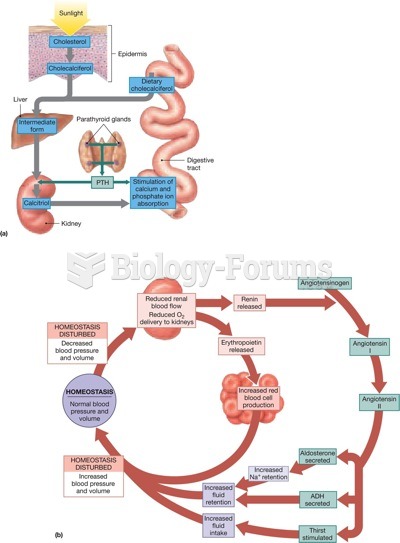|
|
|
Blood in the urine can be a sign of a kidney stone, glomerulonephritis, or other kidney problems.
The term bacteria was devised in the 19th century by German biologist Ferdinand Cohn. He based it on the Greek word "bakterion" meaning a small rod or staff. Cohn is considered to be the father of modern bacteriology.
The average older adult in the United States takes five prescription drugs per day. Half of these drugs contain a sedative. Alcohol should therefore be avoided by most senior citizens because of the dangerous interactions between alcohol and sedatives.
There can actually be a 25-hour time difference between certain locations in the world. The International Date Line passes between the islands of Samoa and American Samoa. It is not a straight line, but "zig-zags" around various island chains. Therefore, Samoa and nearby islands have one date, while American Samoa and nearby islands are one day behind. Daylight saving time is used in some islands, but not in others—further shifting the hours out of sync with natural time.
There are more sensory neurons in the tongue than in any other part of the body.
 Like all animals, primates must balance their calories expended searching for food with calories, pr
Like all animals, primates must balance their calories expended searching for food with calories, pr
 A gasoline direct-injection (GDI) fuel rail and pump assembly with the electric pressure control ...
A gasoline direct-injection (GDI) fuel rail and pump assembly with the electric pressure control ...





